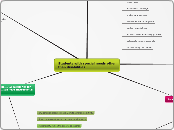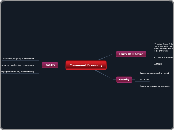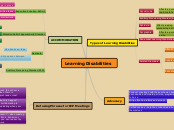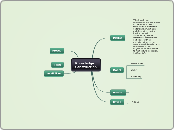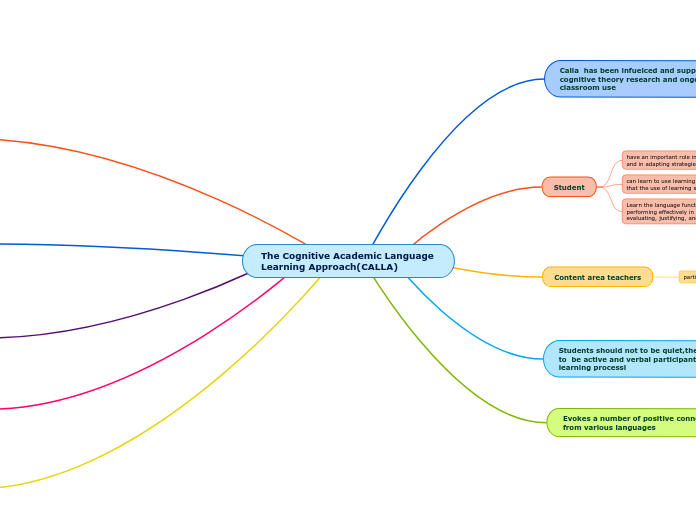More about ADHD
Medication and other cautions
Meds
Straterra
Catapress
Tofranil and Norpramin
Adderall
Dexedrine
Focalin
Ritalin
Concerta
do not condone inappropriate behavior
do not blame parents
problem areas
math
fast computation
Risks
Social Emotional
difficulty making fiends
low self esteem
depression
conflicts with parents and teachers
problems with authority
disruptive
outbursts
to classmates
Common Characteristics
Inat
inability to regulate attention
Reconstitution
ability to transfer skills
Control of emotions and motivation
ability to calm oneself
self-directed speech
silent self-talk that manages complex tasks
Working memory
ability to remember what tasks are to be done and how much time to do it
Students with special needs other than disabilities
As a teacher I should:
UBD
multiple means of engagement
mutiple means of action and expression
multisensory presentation
Who gets the 504?
At Risk
Subtopic
live with drug abusers
abuse
poverty
Culturally Diverse Students
cultural values differ
Asian and Hispanic cultures: cooperative rather than competitive environments
Native American: individual response rather than whole group response and share.
RTI
differnet teaching approches needed
often lack role models
Gifted
problems
behavior issues
model students or problem child
sensitive to others feelings
can be unpopular or well liked
show off
un-nurtured talent
Academics and talent
extraordinary knowledge because of sustained curiousity
keen memory
high consentration ability
wide variety of interests
high levels of language development & verbal ability
abilty to generate original ideas'
high comprehension skills
strong conceptual frameworks
skilles problem solvers because of ability to pick out relevant information
6%
1988 Jacob Javits Gifted and Talented Students Education Act
Federal legislation does not require specific services- determined by state and city
impulsivity
failing to read directions
viewed as immature
acting before thinking
interrupting
difficulty awaiting turn
blurt out answers
hyperactive
defiant
bossy
prone to temper tantrums
talking excessively
difficulty keeping friends
restless/climbing
unable to stay seated
fidgety
inattentive
forgetful
loses things
avoids tasks that require sustained attention
difficulty organizing
fails to finish tasks
lacks detail
seems not to listen
easily distracted
carless mistakes
Students with Learning Problems
Affects school success
significant learning problems, but no determined to have a learning disability according to state criteria
Example: Dyslexia
Chronic Health or Medical problems
ex: asthma, severe allergies, diabetes
Accomodations
Examples
support family involvement
collaborate with professionals
establish peers as teaching partners
set high expectations
bilingual education programs
multicultural education
enhance oral language
teach vocab
build reading fluency
association between written and sounds
segmenting and blending
small group peer interactions
student-centered learning
arrange for peer tutoring in struggling area
offering ways other than reading to aquire information
more choiceregarding assignments
individualized interventions
special circumstances - poverty, nondominant cultures, disabilites.
find mentors with similar backgrounds to show positive outcomes are possible; use technology
Provide:
flexible peer and social groupings
assist with successful transitions
promote empowerment and autonomy (rewards, choice)
improve learning environment (community)
differentiated instruction
mulitple ways to reach their potential
acceleration and enrichment
accelerated:
skip a grade or complete two grade standards in a single year.
enrichment:
provide information, materials, and assignments that enable them to elaborate on concepts being presented as part of the standard curriculum; requiring high levels of thinking.
Curriculum compacting
eliminate goals already met. time is used to pursue special interest, work with a mentor, study topic at a deeper level
work with peers
draw on interests
high levels of participation
Visual organizers
access to T2S software
test is read aloud
testing in separate, quiet location
record lessons so learner can hear them again
permission to postpone highstakes tests when blood glucose is low
frequent bathroom breaks
provisions to make up work
exemption from certain physical activity
opportunities to take medication
occasional rest periods
multiple sets of text books to ease burden of remembering
practice tests
pace instruction with more variety and change over
free from distracting items
make directions, expectations and repremands consise and clear
fold assignments in half to keep from being overwhelmed
establish home/school communication
provide clues indicating beginning and ending times for instruction or assignments
seat student nearest to where teacher leads most instruction
ADHD
level the playing field for learning
Individualized
I do not fall in the IDEA categories for disabilities, But I still need Instructional Focus
Section 504
Regulations are similar to IDEA
create a plan
determine eligibility for service
MDT
must be screened using RTI
responsibility fall on the general ed teacher
does not provide funds to carry out requirements
any condition that substantially limits a major life activity
INCLUDE:
Evaluate
DIFFERNTIATE INSTRUCTION
use information to brainstrom
look for problems
check for areas of success
note needs
indentify
I dont fit into the IDEA categories
Autism, Deaf, Deaf-Blind, Dev. Delay, Emotional Dist., Hearing Impared, Intellectual Dis., Multiple Dis., Orthopedic, Other Health Imp.. Specific Learning Dis., Speech/Lang., Traumatic Brain Injury, Visual Imp.,
